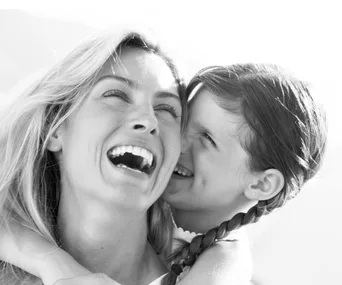It’s Christmas Day and you’re buzzing with excitement – not to rush to the tree and tear into presents with your name on the label, but to give your loved one a special, hand-picked gift. Sound familiar?
Giving to others releases endorphins, creating a sensation called ‘Helper’s High’ – what researchers call the warm fuzzies you get when the pleasure centre of your brain is activated. A 2006 study of people donating money (published in the Proceedings of the National Academy of Sciences in the US) also found that your brain’s ‘reward system’ engages the same way whether you are giving or receiving money.
And it’s not all about the feel-good factor: author Stephen Post suggests in his book Why Good Things Happen to Good People that altruism can improve the health of people with chronic illnesses, decrease stress and encourage mutually beneficial acts, which is good for society as a whole.
The Mental Health Foundation of New Zealand includes giving as part of its Five Ways to Wellbeing, saying: “It feels good to give. Everybody has something to offer. How will you play your part?”
It’s a reminder that giving can be as small as a smile, or as significant as volunteering in your community. With a spectrum that wide, there are opportunities for giving every day.
Donate your stuff
Wardrobe bursting with clothes? Upgraded your entertainment system? Extra cans of food lingering in the cupboard? It’s time to get rid of them.
Drop off clothing, furniture and food at your local City Mission or op-shops such as the Red Cross, Salvation Army or Hospice.
Join freecycle.org and offer things to someone in your area. Freecycle is an online community where people offer items for free, or request items they need. There’s no trading or selling, just things finding a new home.
Give someone your time
Earmarking as little as two hours of your week to donate your services to someone can make a huge difference:
Visit volunteer.org.nz to find organisations in New Zealand that are looking for volunteers.
Your favourite charity may want helpers to collect money or simply to stuff envelopes.
Visit bigbrothersbigsisters.org.nz to see if you’re eligible to mentor a child in your community.
Help your neighbours, friends or family around the house, or with their errands.
Loan, don’t give
Microfinance organisations connect lenders with entrepreneurs in developing countries, for whom a small loan can make a huge financial impact.
- Kiva is one of the most popular microfinance organisations. The process is simple: you sign up and lend US$25 to a borrower who eventually pays it back to a field partner in their area, who then transfers the money to Kiva and back to you. You can choose to lend again, donate or withdraw your money. It’s a very engaging process, because you choose the borrower yourself, whether it’s a farmer in the Philippines, a child minder in Israel, cereal growers in Burundi or a mechanic in Pakistan. Visit kiva.org for more.
Who will get my money?
Choosing which organisation you want to give to is very personal. Here are a few tips for making a decision you’ll feel confident about:*
Find a charity whose vision aligns with your values. Follow its work and watch it achieve the change you want to see in the world.
Don’t be put off by non-profits using funds raised for overheads such as campaigning, advertising and employing staff. If this is helping them help their cause, it’s worth it.
But it’s still important to do your research first. Check out charitynavigator.org for more information about charities you’re interested in, how they operate and what they do with the funds they raise. This allows you to compare charities and track their performance.
Talk to your friends and family. These are the people who know you best and it’s likely they’ll give you good advice if you’re deciding to volunteer or donate to a charity. Your enthusiasm might also motivate them to join you.
Give yourself permission to enjoy the endorphin rush you get from helping others; it’s a good thing and will ultimately help more people. You don’t get much more win-win than that.
Words by: Rachael Harwood


